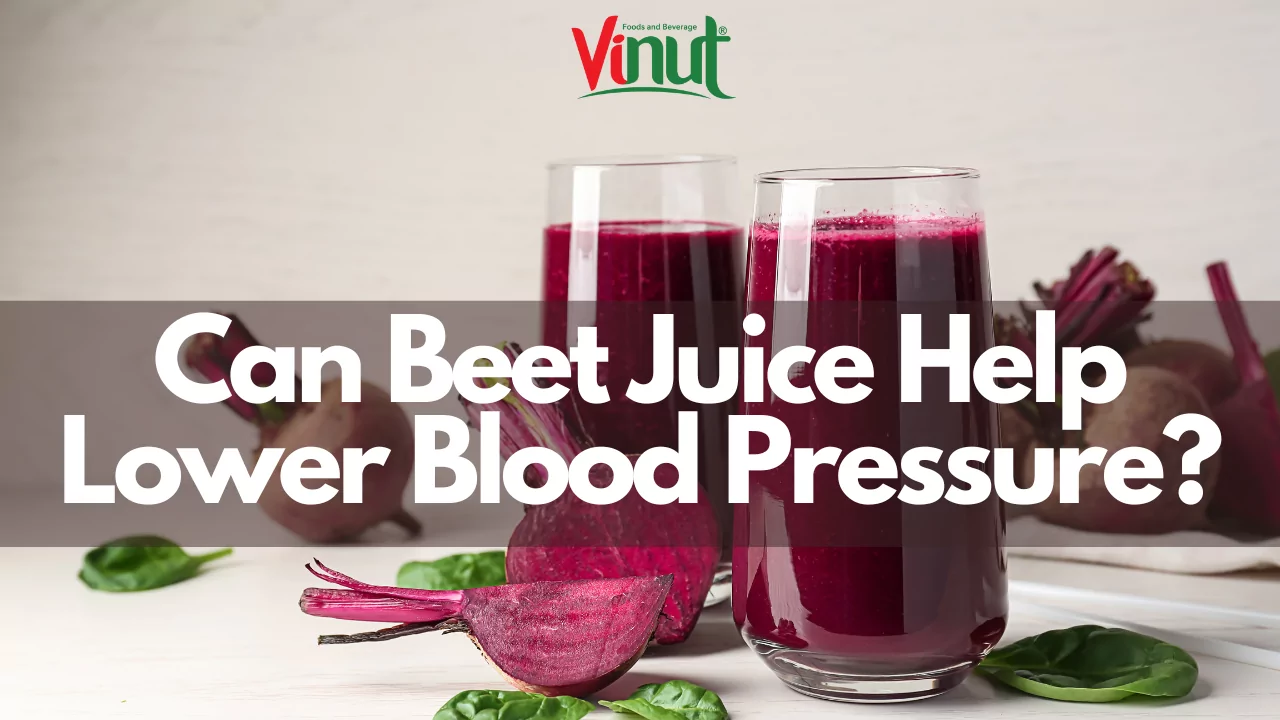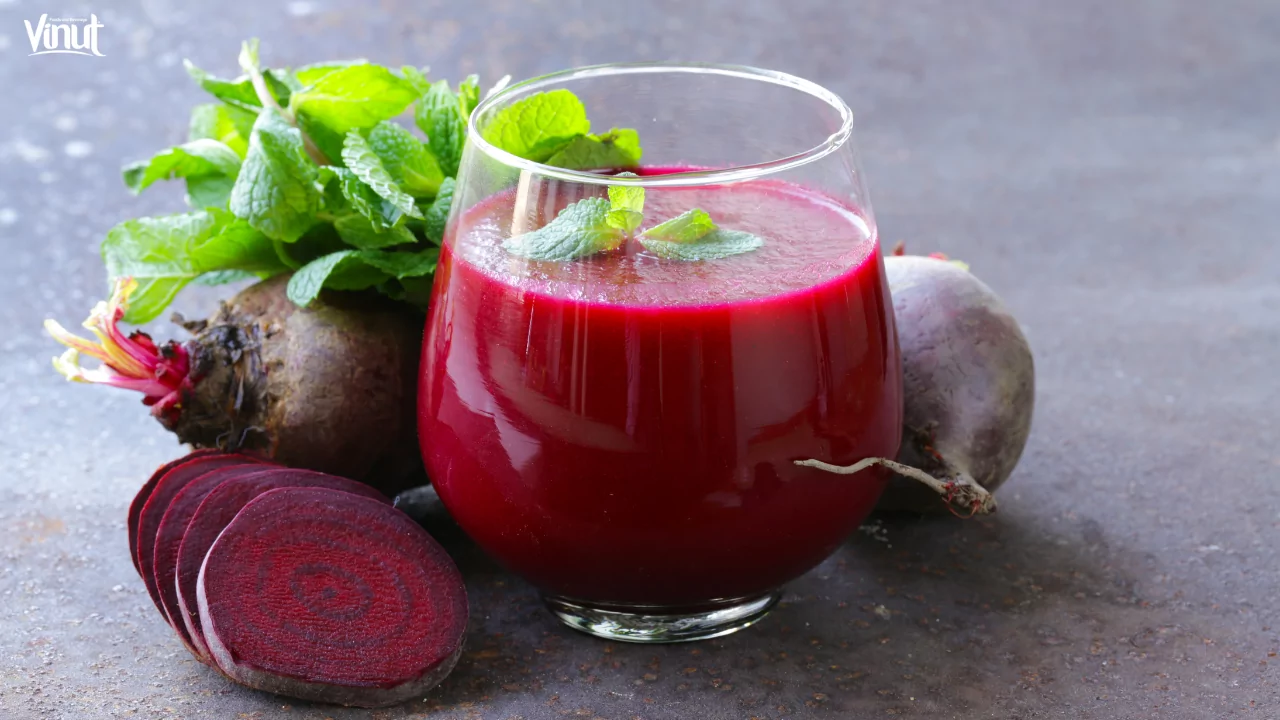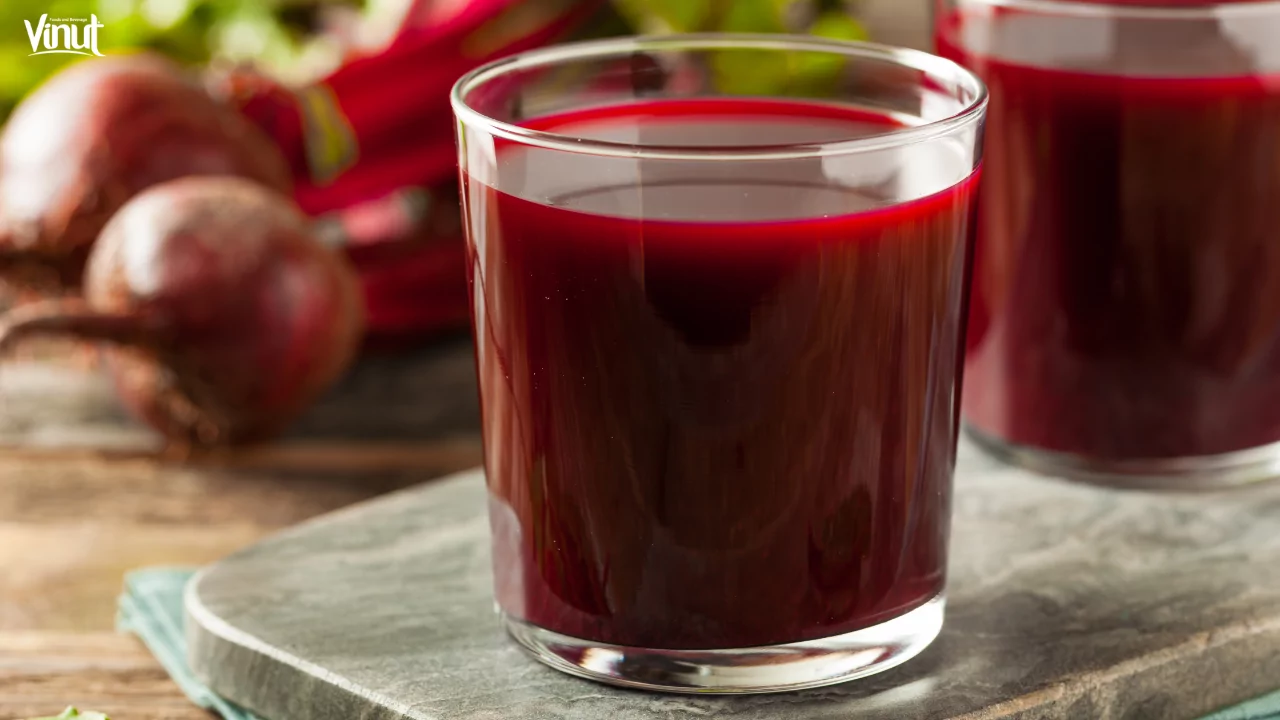Can Beet Juice Help Lower Blood Pressure?

Summary
Beet juice has emerged as a popular health elixir that captivates the attention of fitness enthusiasts, nutritionists, and health-conscious individuals. This crimson beverage, derived from the humble beetroot, is not just visually appealing but also brimming with nutrients, offering many health benefits.
What is Beet Juice?
To truly appreciate beet juice, it’s essential to understand its origins and the unique qualities of beetroots themselves. Beets have been cultivated for centuries, primarily for their leaves and roots. However, it is the root or taproot, that garners the lion’s share of attention in the realm of nutrition.

Nutritional Profile of Beet Juice
Beet juice is not only delicious but also rich in essential vitamins and minerals. The most notable nutrients found within this vibrant juice include:
- Vitamins: This juice is rich in several B vitamins, particularly folate, which plays a critical role in DNA synthesis and repair. Additionally, it contains vitamin C, an antioxidant that helps bolster the immune system.
- Minerals: It boasts an impressive mineral content, including potassium, which aids in muscle function and helps regulate blood pressure. Iron, present in the juice, is vital for oxygen transport in the body.
- Antioxidants: The presence of betalains, a class of antioxidants, contributes to its vibrant color and provides anti-inflammatory benefits.
Incorporating this beverage into your diet can lead to a host of health benefits due to these nutritional attributes. Rich in fiber and low in calories, it’s a guilt-free addition to smoothies, salads, or as a standalone drink.
The Unique Taste of Beet Juice
The taste of this juice is distinctive, often described as earthy and slightly sweet. It can evoke varied opinions; while some find it invigorating and refreshing, others may need time to adjust to its strong flavor. This unique profile makes it an ideal candidate for mixing with other juices like apple, ginger, or citrus fruits, creating delightful concoctions that enhance both taste and nutritional value.
Pros and Cons of Beet Juice
Like any health trend, this juice comes with its advantages and disadvantages. Understanding both sides allows you to make informed decisions about incorporating it into your diet.

Health Benefits of Beet Juice
This juice has garnered a reputation as a superfood for various reasons:
- Cardiovascular Health: Research suggests that it may help lower blood pressure due to its high nitrate content. Nitrates convert to nitric oxide in the body, leading to improved blood flow and reduced strain on the heart.
- Enhanced Athletic Performance: Many athletes turn to the juice as it may improve stamina and endurance. Studies indicate that nitrates can increase blood flow to muscles, enhancing oxygen delivery during exercise.
- Detoxification: The antioxidants and compounds found in beet juice support liver health and help detoxify the body. This can lead to improved overall wellness and energy levels.
Potential Drawbacks of Beet Juice
Despite its myriad benefits, there are some considerations to bear in mind with beet juice consumption:
- High Sugar Content: While natural sugars in beets are preferable to processed sugars, drinking beet juice can still result in a quick spike in blood sugar levels. Individuals with diabetes should monitor their intake carefully.
- Digestive Issues: Some people may experience digestive discomfort after consuming beet juice, particularly when introduced abruptly into their diets. Starting with small amounts and gradually increasing can help mitigate these effects.
- Urine Color Change: An interesting phenomenon associated with beet juice is the temporary change in urine color, known as beeturia. It’s harmless, but it can be alarming for those unprepared for it.
By weighing the pros and cons, you can determine the role beet juice should play in your health journey.
FAQs
Is this juice good for weight loss?
It is low in calories and can be a valuable addition to a weight-loss plan. Its high fiber content helps promote satiety, while its natural sweetness can satisfy cravings for sugary foods. However, portion control is essential, as drinking excessive amounts may lead to higher sugar intake.
Can this drink help lower blood pressure?
Yes, studies suggest that the nitrates in this juice can help lower blood pressure. Nitrates convert to nitric oxide in the body, relaxing blood vessels and improving circulation. Regular consumption may contribute positively to cardiovascular health.
How much juice should I drink daily?
There is no one-size-fits-all answer, but starting with a small serving of around half a cup per day is reasonable for most individuals. Observe how your body responds and adjust according to your preference and tolerance.
Does beet juice stain teeth?
It can indeed stain teeth due to its pigmented nature. To minimize staining, rinse your mouth with water after consuming this juice, and maintain regular dental hygiene practices. Drinking through a straw can also reduce direct contact with teeth.
Can I freeze beet juice?
Yes, you can freeze this juice. Pour it into ice cube trays or airtight containers, ensuring some space for expansion. Thawed beet juice can be used in smoothies or cooking, although the texture and flavor may slightly change after freezing.
Beet juice is an extraordinary beverage that boasts numerous health benefits, vibrant flavor profiles, and versatile uses in the culinary world. By understanding the intricacies of preparing, consuming, and enjoying beet juice, you can seamlessly incorporate this nutrient-rich drink into your daily routine.


 Juice Concentrate
Juice Concentrate Vegetable juice
Vegetable juice Juice Milk
Juice Milk Stand Up Pouches
Stand Up Pouches









